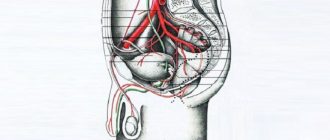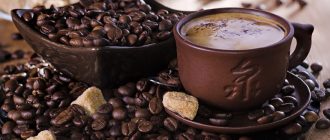Diet for prostate adenoma is one of the mandatory steps in the complex therapy of BPH. It is not capable of leading to a cure on its own, but is necessary in order to normalize the functioning of the organ during drug treatment and prevent relapse of the disease. A diet for prostate adenoma requires restricting the diet and organizing the correct diet and drinking regimen.
General principles of nutrition for adenoma
The diet for prostate hyperplasia is aimed at maintaining the required level of testosterone, increasing the supply of antioxidants and saturating the body with essential vitamins and microelements.
Diet for BPH of the prostate gland should consist mainly of plant and protein products with a low content of animal fats. This helps facilitate the process of digestion of food, prevents excess gas formation, eliminates constipation and other possible complications.
To eat properly with prostate adenoma, you need not only to correct your diet, but also to organize a regimen. It is recommended to eat fractional meals, divided into 5-6 meals with 2-3 hours between them. Portions should be small, after eating them you should not feel overeated.
A diet for prostate adenoma and urinary retention also includes the correct drinking regimen. The rate of fluid intake increases to 3 liters per day, this helps to improve the urination process. It is advisable to drink most of the water in the first half of the day, gradually reducing its amount in the evening. 2-3 hours before bedtime you need to limit its intake as much as possible. The main liquid should be non-carbonated mineral (sodium bicarbonate) or simply pure water, as well as herbal and green teas, vegetable and fruit juices (self-squeezed, industrially produced ones contain an increased amount of sugar) and fermented milk drinks.
The diet for prostate BPH limits the consumption of fatty meats, seafood and dairy products. It is recommended to completely eliminate refractory animal fats, which burden digestion and absorption, and replace them with vegetable ones. Carbohydrates should be predominantly in complex form, such as those found in cereals, vegetables and fruits. It is permissible to eat only vegetarian soups that are not prepared with meat broth and without frying.
Nutrition for prostatic hyperplasia helps reduce the rate of proliferation of prostate tissue. This is accomplished by increasing the intake of vitamins A and E, as well as beneficial microelements, mainly zinc and selenium - they are necessary for the proper functioning of the immune system. These substances are found in large quantities in dietary seafood and vegetable oils (pumpkin, olive and sunflower, as well as sprouted wheat oil). But with intensive heat treatment they are destroyed, so restrictions also apply to the method of cooking - boiled, stewed, oven-cooked or steamed dishes are allowed.
It is also recommended to take fish oil; in addition to containing beneficial microelements, it improves the absorption of other beneficial substances by the body.
Allowed and useful products for adenoma
You can eat with prostate adenoma:
- Vegetables - tomatoes, carrots, cabbage (cauliflower and broccoli), cucumbers, pumpkin, zucchini, eggplant, lettuce, beets, sweet peppers (tomatoes and pumpkin are the most healthy, try to increase their amount in the diet). Potatoes, celery, turnips are allowed in moderation.
- Fruits - oranges, apricots, peaches, plums, apples, raspberries, watermelon, melon. Dried fruits – dried apricots, prunes and raisins – will be very useful.
- Meat – chicken and turkey fillets, as well as rabbit and hare. A small amount of lean cuts of beef is acceptable.
- Seafood - salmon, salmon, tuna, herring, flounder, mussels, shrimp, crayfish, oysters. All seafood should not be salted or marinated.
- Cereals – whole grain oatmeal and buckwheat porridge, lentils, soybeans (cooked only in water).
- Fermented milk products - kefir, fermented baked milk, non-carbonated ayran, sour cream (0% fat), yogurt, fermented milk cheese products.
- Drinks - herbal and green tea, freshly squeezed vegetable and fruit juices (preferably for breakfast), rosehip decoction, compotes (prepared with a small amount of sugar or with dried fruits).
Fruits and vegetables for prostate adenoma should make up 60-70% of the total diet; eating protein foods is best for breakfast or in the first half of the day.
Eating a small amount of parsley and mustard will be beneficial, but a large amount, on the contrary, will be harmful.
For prostate adenoma, bee products (in limited quantities) are recommended; they help reduce the size of the gland. Also among the essential products are pumpkin and flax seeds, sesame seeds, sprouted wheat and walnuts.
Prohibited foods for adenoma
If you have prostate adenoma, you should not eat the following foods:
- Fried, salted, smoked, spicy and hot dishes, as well as semi-finished and canned foods.
- Vegetables – radish, radish, garlic, ginger, horseradish, onion.
- Meat - pork and lamb, fatty parts of beef and veal, as well as broths based on them.
- Sausages.
- Flour products and baked goods.
- Salted or marinated seafood, fatty fish and broths made from it.
- Cereals – rice, millet.
- Sauces.
- Sweets - especially chocolate.
- Drinks – milk, black tea, coffee, alcohol.



